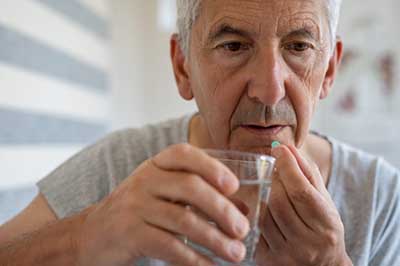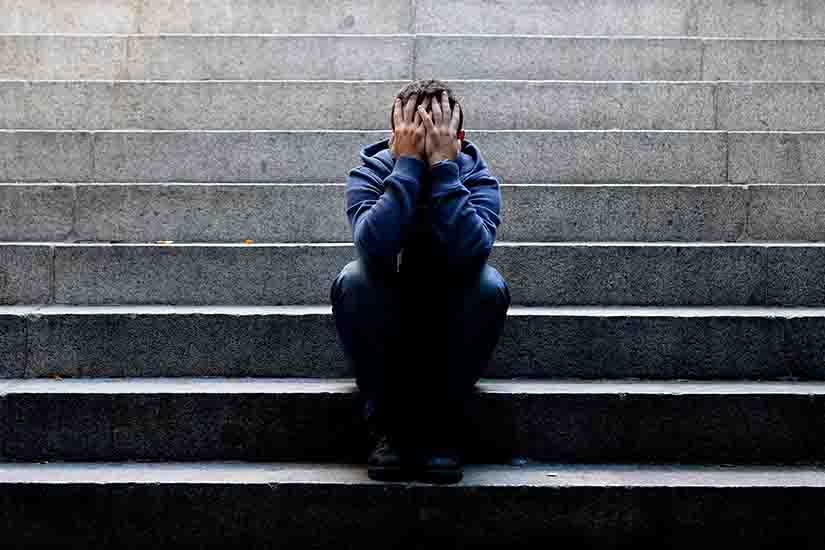Four Myths about Addiction
Addiction is a complicated affliction. In the last five decades, researchers have made a lot of progress in understanding addiction. They have sought, with some success, to discover how and why people become addicted by observing the real world. Earlier notions of addiction, seemingly based on presupposition and wild guessing with a heaped serving of moralizing, remain widespread. We now know, among other things, that some people have genetic conditions that probably increase their risk of becoming addicted. Clinical workers dedicated to helping people overcome addiction and researchers have noticed that shame is not helping. The modern understanding of addiction replaces condemnation with compassion. That does not mean enabling; it just means we can help more when we refrain from judging. Let’s look at four myths about why people get addicted and straighten out those misconceptions.
Myth One: Addiction is a Moral Failing
Some people think all addicts are just irresponsible hedonists who don’t care about anything except for having a good time. That is not so. Indeed, some irresponsible hedonists become addicted, but that does not mean that all addicts are irresponsible hedonists. Some people wind up addicted as a result of desperately trying to self-medicate to deal with horrific trauma, for instance. That is not a simple case of irresponsible pleasure-seeking. People with strong morals can become addicted too.

Myth Two: Addiction is a Choice
People voluntarily put themselves at risk of addiction when they choose to use any addictive substance, regardless of whether that substance is widely socially accepted, like alcohol, or generally frowned on, like meth. But the majority of people who use addictive substances do so without becoming addicted. Somewhere out there, there is someone who deliberately set out to become addicted and succeeded. But the vast majority of addicts are people who thought they could use a substance without becoming addicted.
Some of them have not figured out they were wrong; they are in denial. (Read about how to talk to someone you think may have a problem with addiction here.) Some of them have realized they have a problem, but they have not yet decided to seek help. (Read about how to convince someone to go to rehab.) Others are in rehab practising for life; in recovery or out on their own (with the support of their group), carefully doing the daily work to stay on the road of recovery.
Myth Three: Addiction is a Lack of Willpower
When people use an addictive substance, it gradually changes the physical functioning of the brain. Regular reward cycles are interrupted. The substance gradually becomes the only way that the addict can feel good. It might be more accurate to say addiction causes lack of willpower than to say that lack of willpower causes addiction. Some people with very little impulse control can use addictive substances without becoming addicted. Lack of willpower may put a person more at risk for addiction, but it is not the principal factor. Other factors are more important. For instance, sorry fellas, but men are around 50% more likely to struggle with addiction.

Myth Four: Addiction is an Untreatable Disease
Some people say that addiction is incurable. This is a potentially useful perspective. When we say addiction is hopeless, we are asserting that once addicted; an addict must prepare to manage their condition for the rest of their life. We could think of addiction as incurable in the sense that the person will always be more at risk of falling into a habit than someone who is not an addict. And knowing this, we can advise the person to take precautions and learn special tools and skills for staying clean and sober. But whether or not you choose to say that addiction is “incurable” or not, addiction is certainly treatable.
Addiction changes the brain, but these changes are reversible. Therapy, exercise, mediation, and other approaches make addiction much more manageable. Millions of addicts get clean, stay clean, and leave happy and productive lives. For most addicts, a proper treatment plan designed by experienced, compassionate professionals is essential for success in recovery.
Transformation starts here
Taking that first step towards recovery is one of the most powerful things you can do. If you or a family member need help and you want to get the best treatment possible, get in touch with us now. With over twenty years of helping people to find peace in recovery, we are South East Asia’s Premier Addiction Treatment Centre.





